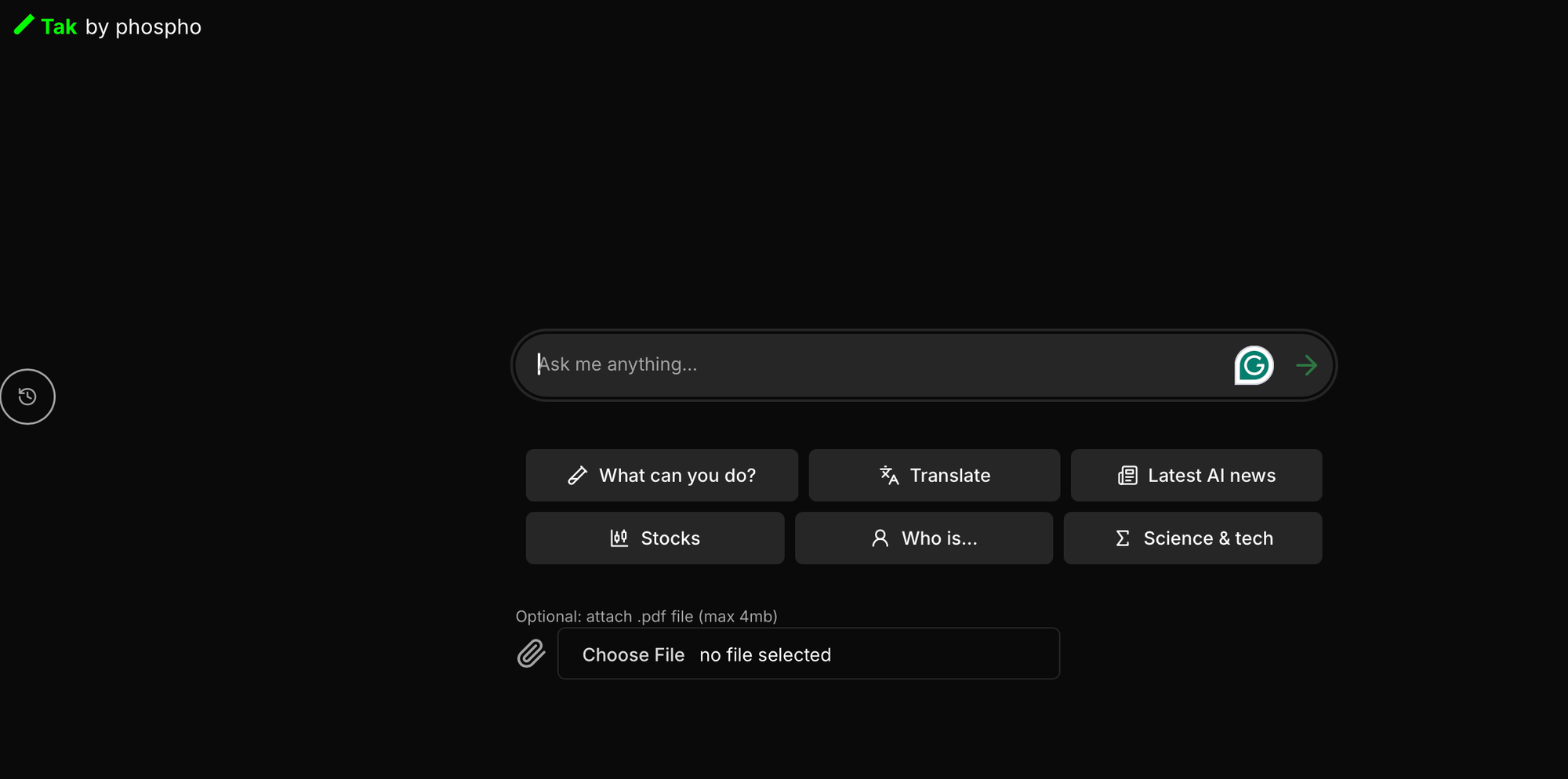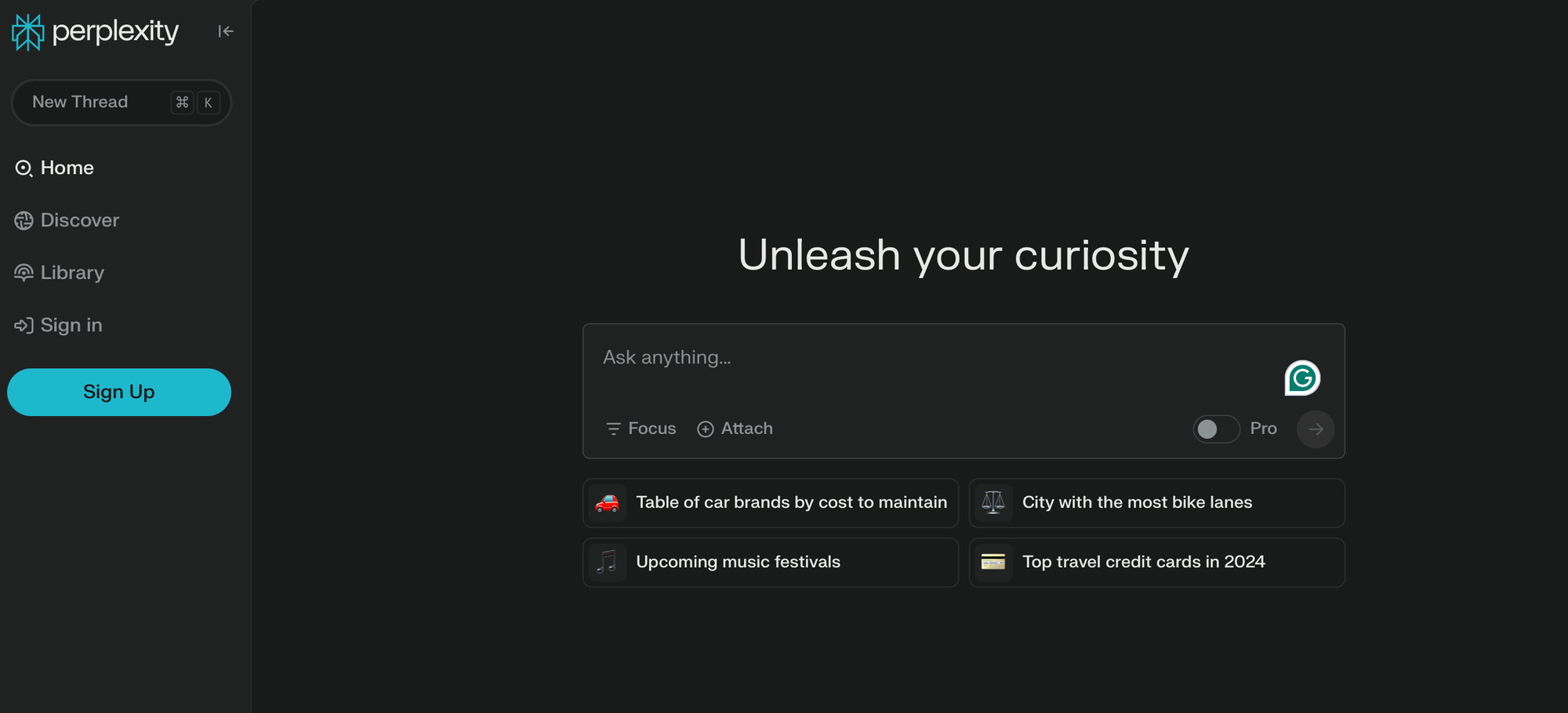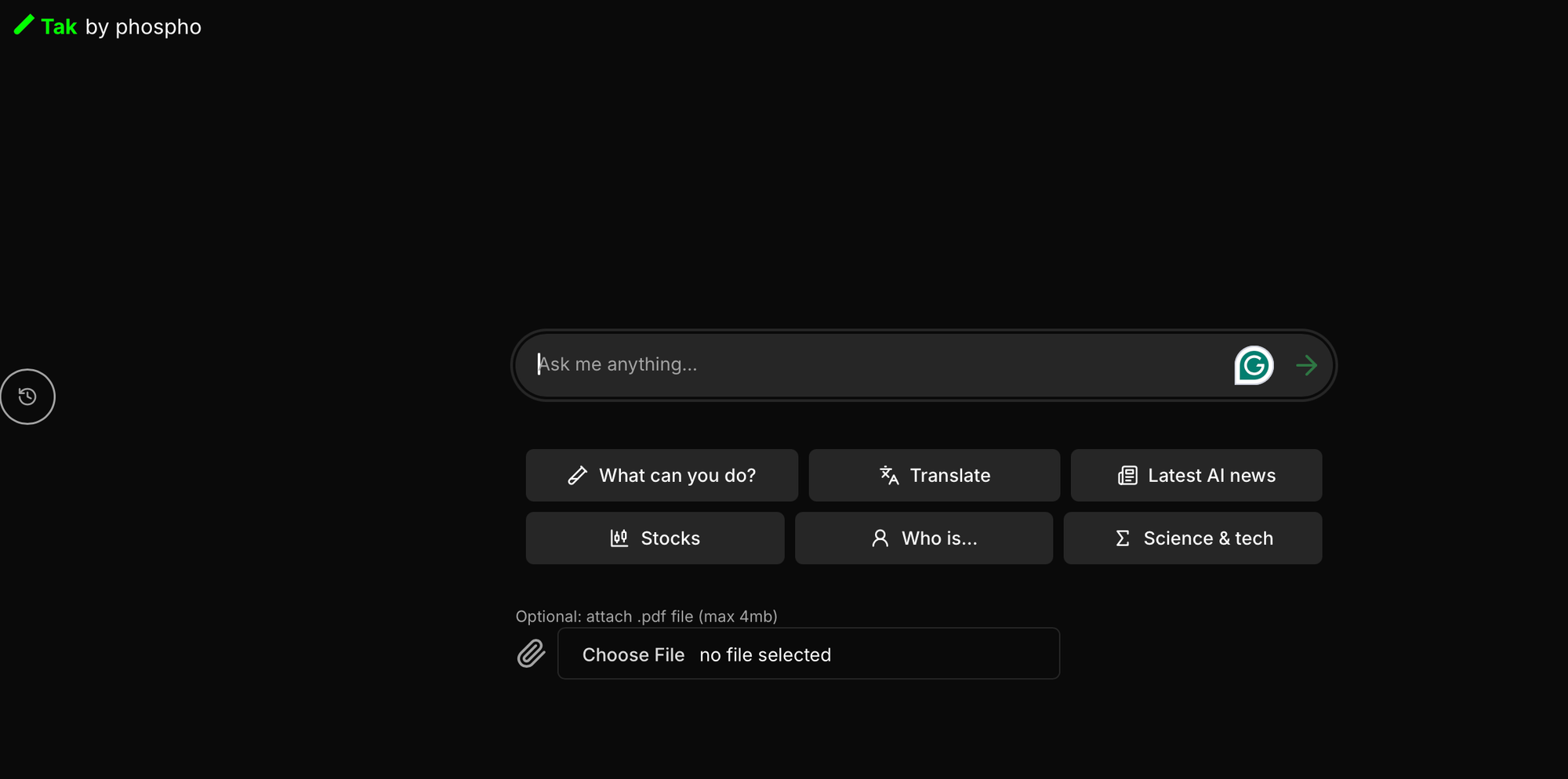Perplexity vs Poe: Which AI Search Tool is Better?
This article compares AI search tools Perplexity and Poe, analyzing their strengths and weaknesses. It also introduces Phospho’s Tak, highlighting its superior analytics, custom metrics, and business-friendly features.

Exciting news, phospho is now bringing brains to robots!
With phosphobot, you can control robots, collect data, fine-tune robotics AI models, and deploy them in real-time.
Check it out here: robots.phospho.ai.
In the last year alone, AI search tools have seen massive uptake. As search engines become more sophisticated and more suited for human interaction, online search expectations and capabilities also are evolving.
We're seeing platforms learn from user data to deliver results that are more accurate, nuanced and contextually relevant to user queries than ever before.
In this article, we’ll compare two of the most popular AI tools on the market right now and tell you who and what we recommend them for.
Plus, we'll also throw in Phospho's own AI search tool, Tak, to see how it stacks up.
What Are AI Search Tools?
AI search tools provide quick, reliable search engine results and reply to queries via natural language and machine learning processing. They're designed to mimic human responses.
AI search engines use LLM (Large Language Models) and RAG (Retrieval Augmented Generation) and are therefore much more sophisticated than traditional search engines such as Google and Bing. They can easily emulate human responses and provide contextual relevance along with the most accurate and current information. Consequently, AI search is becoming more important for activities like data analysis and user experience improvement.
AI search tools are providing businesses, researchers and consumers with fast, relevant answers that far outweigh anything you would find on Google.
Perplexity Vs Poe: Comparing AI Search Tools
Perplexity AI

Perplexity AI is an AI search engine that provides fast, accurate responses to user queries and questions. It's really good if you're looking for real-time responses and data that can be backed up by credible sources. It also has a nice conversational style and can understand most search contexts.
Perplexity AI is best used for research-heavy queries, say Reddit users, making it great for essay or report writing, or for use in industries that require a lot of factual research, like journalism.
The tool has a free option that allows as many searches as you like, which is a really great feature if you're not looking to commit to regular costs. It also has a 'pro' option that costs $20 per month - this includes AI models such as Claude 2 or GPT-4, which allow more than 300 questions per day.
The platform also features an 'Academic' setting for fact-based research, which could come in handy for essays or reports or just about any task that depends on highly factual and up-to-date information.
Perplexity could be used to generate research for medical reports, pull data for customer insights or when putting together a vital business document like a competitor analysis.
Although it could be used successfully in a variety of professional and educational settings, Perplexity AI does have its limitations. It can only use text-based interactions for a start, and some users have said responses are too rigid, meaning there is little flexibility or contextual awareness.
Others report the occasional inaccuracy when reporting data or information, which could spell disaster if you're looking for hyper-accurate data for research purposes.
Poe

Poe is Quora's AI search tool, and is another perfectly good option if you're looking for an AI search engine. This platform powers conversations with AI and delivers real-time conversational search results across topics.
Poe basically lets users have dialogues with AI bots, but it does lack the advanced search capabilities of Perplexity and other platforms.
It has several AI options, including ‘Claude’, so you can have fun trying out different bots!
Poe also has a really user-friendly design and produces conversational, human-like responses in multiple languages. Its super fast response time works great if you're looking for quick answers without needing to rely too much on data accuracy -- so not so good for research.
We would recommend Poe for everyday users, rather than those who are serious about data insights or research. For example, if you're a content creator looking for new ideas, or a business leader wanting to research different tools, Poe could be a great alternative to ChatGPT and other search engines.
Poe AI has a free tier, which makes it well-suited to casual users. If you want access to more advanced AI models, though, you can pay $19.99 per month or $199.99 a year. The subscription offers 600 GPT-4 and Claude, with scope for 1000 messages per month.
Comparing the Two
Poe is a good AI search tool for casual users, educators and anyone interested in AI interactions. Perplexity appears to be the better option for researchers looking for much more accurate information and data, which probably makes it the better option for businesses, too.
Some users say Poe lacks some precision and depth in its responses, which could pose further problems for anyone seeking the most accurate and up-to-date information, but for now it works great as a casual search engine or conversational AI.
A New Alternative to Perplexity and Poe: Tak
Perplexity and Poe are both great tools, but in our opinion, neither provides the rich, custom insights that users want and need if they're serious about leveraging AI.
Tak is an AI search engine built on Phospho's text analytics platform. It provides deep insights and real-time analytics and is a great tool for anyone looking to get around the limitations of Perplexity and Poe without sacrificing any of the benefits.
You can also enjoy unique features, such as:
- Tailored insights from queries, custom metrics and custom KPIs.
- Real-time monitoring.
- Immediate logging and analysis of user interactions in search sessions.
- integration with existing tools (JS, Python, CSV, OpenAI, and LangChain) -
- High-level AI feedback.
Tak is free to use, but we offer a pro version at $14 per month that includes priority access to pro features, faster bot responses and more API credits.
Why Tak?

Superior Analytics
Tak's real-time monitoring and customizable KPIs are undoubtedly two of its standout features.
While Perplexity provides reliable citations and Poe offers interactive conversations, Tak provides both! It can deliver data-driven insights that you can use to keep improving with each iteration, whether you're a business owner, content creator or developer wanting to sharpen your results.
Real, Tailored Performance Metrics
Tak can show users how various AI models perform with custom metrics. Notably, this is something neither Perplexity nor Poe provides.
Better for Business Applications
Tak is easy to integrate with existing workflows and tools, more business-friendly than Perplexity or Poe, more for casual or research users.
Learning and Improvement
You can constantly test and iterate on AI models or prompts using Tak, meaning the software will be adapting to suit your needs and preferences all the time. This unique feature provides developers with critical insights that Perplexity and Poe unfortunately lack.
Which AI Tool is Right for You?
With so many differerent AI search tools on the market right now, we know it can be tricky to weigh up the pros and cons of each platform and decide which one is right for you. And ultimately, it really depends on your unique needs as a business or content creator, as well as the benefits you're looking to derive from an AI platform.
To recap the key differences between platforms here, the main takeaway is that Perplexity excels in accuracy and Poe in conversation. Perplexity might then be better suited to those looking for deep data insights or lots of factual information broken down and certified by source. Poe is much more effective as a conversational AI and search engine, so is better suited to casual and free users, who are perhaps just getting started with AI.
Tak, however, excels in both conversation and results, so it might be the best option for those who are serious about collecting data-driven insights and customizing their AI workflow. This might apply to developers, business leaders, content creators or influencers.
The only real way to discover which AI search tool is right for you is not to read endless Perplexity vs Poe threads or listen to us extolling the benefits of Tak – the best way is to try it for yourself.
Want to take AI to the next level?
At Phospho, we give brains to robots. We let you power any robot with advanced AI – control, collect data, fine-tune, and deploy seamlessly.
New to robotics? Start with our dev kit.
👉 Explore at robots.phospho.ai.
